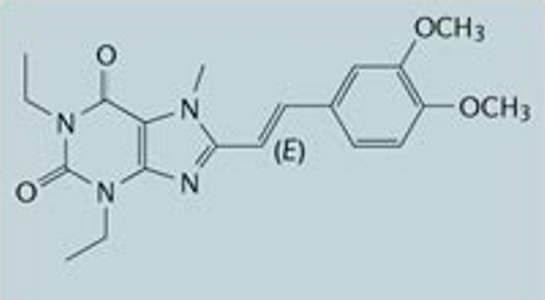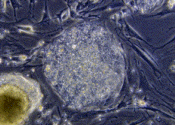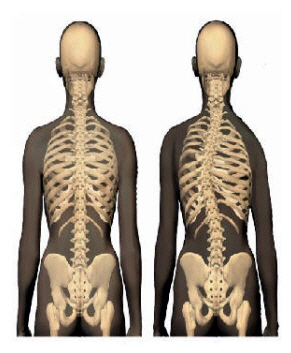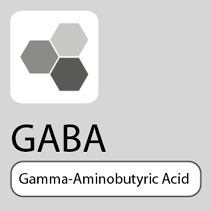28th July 2009 - New research
HIGH CARBOHYDRATE FOODS LESSEN PARKINSON'S DISEASE
Nutrition [2009] Jul 21
[Epub ahead of print] (Murakami K, Miyake Y, Sasaki S, Tanaka K, Fukushima W,
Kiyohara C, Tsuboi Y, Yamada T, Oeda T, Miki T, Kawamura N, Sakae N, Fukuyama H,
Hirota Y, Nagai M; for the Fukuoka Kinki Parkinson's Disease Study Group.)
Complete abstract
High
glycemic carbohydrates have been found to be inversely related to Parkinson's
Disease. Carbohydrates that have a high glycemic index (such as sugar, white
bread, baked potatoes and breakfast cereals) are those that break down quickly
in to glucose in the blood. For more information go to
Glycemic index.
 The researchers expected that foods such as these
would decrease the risk of Parkinson's Disease by an insulin-induced increase in
brain dopamine. Their theory appears to be correct, because high glycemic
carbohydrates were inversely associated with the risk of
Parkinson's Disease. The greater the intake, the less was the risk. No
association was observed for other dietary carbohydrates, or dietary fiber
intake.
It was already known that
an inability to make use of carbohydrates was common in Parkinson's Disease,
with 50%-80% of people with Parkinson's Disease being prone to diabetes. In
those people, higher carbohydrate intakes can not be made use of. For more
information see the
Complete abstract. In order to refer to this
article on its own
click here.
The researchers expected that foods such as these
would decrease the risk of Parkinson's Disease by an insulin-induced increase in
brain dopamine. Their theory appears to be correct, because high glycemic
carbohydrates were inversely associated with the risk of
Parkinson's Disease. The greater the intake, the less was the risk. No
association was observed for other dietary carbohydrates, or dietary fiber
intake.
It was already known that
an inability to make use of carbohydrates was common in Parkinson's Disease,
with 50%-80% of people with Parkinson's Disease being prone to diabetes. In
those people, higher carbohydrate intakes can not be made use of. For more
information see the
Complete abstract. In order to refer to this
article on its own
click here.
26th July 2009 - New report
AGENT ORANGE WRONGLY LINKED TO PARKINSON'S DISEASE
Veterans and Agent Orange Update
2008
Complete report
Based on a new report, it has been widely reported that Agent Orange has been
"linked" to Parkinson's Disease.
Agent Orange is the
name given to a herbicide used by the U.S. Military during the Vietnam War
as a means of warfare. For more information go to
Agent Orange.
Despite the claims being made, not even one
study in the report shows that Agent Orange had caused Parkinson's Disease in
Vietnam War veterans. Even the report itself states that there is not sufficient
evidence of an association between Agent Orange and Parkinson's Disease "because
chance, bias, and confounding could not be ruled out with confidence."
 There have been over
300 published studies on the effects of Agent Orange, yet none of
them have shown that
Agent Orange has caused Parkinson's Disease. Claims of Agent Orange
causing Parkinson's Disease have usually detailed how Parkinson's
Disease was diagnosed years after possible exposure to Agent Orange.
However, with Parkinson's Disease,
if somebody is affected by a toxin, they
usually suffer the effects at their worst soon after exposure to the toxin. So
if Agent Orange caused the symptoms of Parkinson's Disease, they would have
initiated whilst in Vietnam - not decades later. Somebody could be exposed to
Agent Orange and quite independently develop Parkinson's Disease. Parkinson's
Disease can occur in almost anyone without toxicity being the cause.
In order to refer to this
article on its own
click here.
There have been over
300 published studies on the effects of Agent Orange, yet none of
them have shown that
Agent Orange has caused Parkinson's Disease. Claims of Agent Orange
causing Parkinson's Disease have usually detailed how Parkinson's
Disease was diagnosed years after possible exposure to Agent Orange.
However, with Parkinson's Disease,
if somebody is affected by a toxin, they
usually suffer the effects at their worst soon after exposure to the toxin. So
if Agent Orange caused the symptoms of Parkinson's Disease, they would have
initiated whilst in Vietnam - not decades later. Somebody could be exposed to
Agent Orange and quite independently develop Parkinson's Disease. Parkinson's
Disease can occur in almost anyone without toxicity being the cause.
In order to refer to this
article on its own
click here.
24th July 2009 - New book and DVD
MOVE IT, AN EXERCISE AND MOVEMENT GUIDE FOR
PARKINSON'S DISEASE
Kevin Lockette
 Publisher's
description : Move It! is a complete movement, exercise and resource guide for
people with Parkinson's Disease. The book includes : Overview of physical
symptoms; Medication review in easily understandable terms; Techniques and
tricks for improved mobility including bed mobility, transfers, & walking;
Anti-freezing techniques that really work; Adaptive devices for easier everyday
living; Complete exercise programs specific for Parkinson's Disease; Exercise
programs for all physical levels; Complete
guide and exercise program for flexibility. For
more details of the book click
here. For more details of the DVD click
here. For the web site click
here.
For more books concerning Parkinson's Disease go to
Parkinson's Disease Books.
Publisher's
description : Move It! is a complete movement, exercise and resource guide for
people with Parkinson's Disease. The book includes : Overview of physical
symptoms; Medication review in easily understandable terms; Techniques and
tricks for improved mobility including bed mobility, transfers, & walking;
Anti-freezing techniques that really work; Adaptive devices for easier everyday
living; Complete exercise programs specific for Parkinson's Disease; Exercise
programs for all physical levels; Complete
guide and exercise program for flexibility. For
more details of the book click
here. For more details of the DVD click
here. For the web site click
here.
For more books concerning Parkinson's Disease go to
Parkinson's Disease Books.
22nd July 2009 - New research
ISTRADEFYLLINE FAILS CLINICAL
TRIALS FOR PARKINSON'S DISEASE
Parkinsonism Related
Disorders [2009] Jul 17 [Epub ahead of print] (Fernandez HH, Greeley DR, Zweig
RM, Wojcieszek J, Mori A, Sussman NM)
Complete abstract
Istradefylline is an A(2A) adenosine receptor antagonist, and so does not act by
directly increasing the activity of dopamine, as do the most effective methods
of treating Parkinson's Disease. It has been claimed for years to be a promising
method of treating Parkinson's Disease on its own. However, in new clinical
trials, when used on its own, it failed to demonstrate any
beneficial effect. By the end of the clinical trial its effects were
little different from the use of a placebo. The researchers claim that
Istradefylline "is safe and well tolerated". Yet about two thirds of the
 people
using it reported adverse events, despite failing to gain any benefit from it.
In three previous clinical trials in 2008, the benefits claimed were minimal,
and were accompanied by a range of side effects
[1]
[2]
[3].
Istradefylline is one of a series
of recent novel approaches for treating Parkinson's Disease
that has been claimed,
despite not having a sound scientific basis, to be very promising, yet has
failed when clinically tested. In order to refer to this article on its own
click here.
people
using it reported adverse events, despite failing to gain any benefit from it.
In three previous clinical trials in 2008, the benefits claimed were minimal,
and were accompanied by a range of side effects
[1]
[2]
[3].
Istradefylline is one of a series
of recent novel approaches for treating Parkinson's Disease
that has been claimed,
despite not having a sound scientific basis, to be very promising, yet has
failed when clinically tested. In order to refer to this article on its own
click here.
19th July 2009 - New research
THE EFFECT OF ADDING AGONISTS TO
L-DOPA IN PARKINSON'S DISEASE
Neural Stem
International Journal of Clinical Practice [2009] 63 (4) : 613-623 (Talati R,
Baker WL, Patel AA, Reinhart K, Coleman CI.)
Complete abstract
Adding the use of dopamine agonists to the
existing use of L-dopa has been found to reduce Parkinson's Disease symptoms,
but it increases the side effects. As the effect of L-dopa tends to wear off,
some patients are given dopamine agonists for an additional effect.
 Scores on the primary assessment of Parkinson's
Disease, the UPDRS,
are reduced when people added dopamine agonists
to the existing use of L-dopa. They also experienced symptoms for less time,
and were able to reduce their dosage of L-dopa. However, the incidence of
dyskinesia and hallucinations was higher when dopamine agonists were added
to the existing use of L-dopa. So the increase in efficacy was paid for with
increased adverse events. Although the effect of L-dopa wears off in time,
so does the effect of dopamine agonists. They work by stimulating the dopamine receptors.
However, continuous use of
dopamine agonists makes the dopamine receptors progressively less sensitive to
dopamine and dopamine agonists. In order to refer to this
article on its own
click here.
Scores on the primary assessment of Parkinson's
Disease, the UPDRS,
are reduced when people added dopamine agonists
to the existing use of L-dopa. They also experienced symptoms for less time,
and were able to reduce their dosage of L-dopa. However, the incidence of
dyskinesia and hallucinations was higher when dopamine agonists were added
to the existing use of L-dopa. So the increase in efficacy was paid for with
increased adverse events. Although the effect of L-dopa wears off in time,
so does the effect of dopamine agonists. They work by stimulating the dopamine receptors.
However, continuous use of
dopamine agonists makes the dopamine receptors progressively less sensitive to
dopamine and dopamine agonists. In order to refer to this
article on its own
click here.
17th July 2009 - New research
STEM CELLS MIGRATE IN PARKINSON'S DISEASE
Neuroscience Letters
[2009] Jul 8. [Epub ahead of print] (Feng ZH, Ji MA, Li YU, Gang YU.)
Complete abstract
Neural Stem Cell transplantation has been claimed for decades to have the
potential to treat medical disorders including Parkinson's disease. Researchers
investigated the effect of transplanted Neural Stem Cells in an animal model of
Parkinson's Disease. They found that the implanted stem cells migrated to where
they are needed, rather than merely remain where they are added. A significant
portion of the cells differentiated in to the cells responsible for producing dopamine, the substance
whose deficiency causes Parkinson's Disease.
 The
researchers claimed that
this
improved Parkinson's Disease. However, the Parkinson's Disease symptoms
were only induced, and their methods did not actually assess improvements in
Parkinson's Disease. Despite stem cell operations now being carried out around
the world, they have never resulted in anyone being rid of Parkinson's Disease.
Although it is claimed that stem cell operations are necessary because there is
massive cell loss in Parkinson's Disease, no studies have ever shown that there
is massive cell loss in Parkinson's Disease.
In order to refer to this
article on its own
click here.
The
researchers claimed that
this
improved Parkinson's Disease. However, the Parkinson's Disease symptoms
were only induced, and their methods did not actually assess improvements in
Parkinson's Disease. Despite stem cell operations now being carried out around
the world, they have never resulted in anyone being rid of Parkinson's Disease.
Although it is claimed that stem cell operations are necessary because there is
massive cell loss in Parkinson's Disease, no studies have ever shown that there
is massive cell loss in Parkinson's Disease.
In order to refer to this
article on its own
click here.
14th July 2009 - New research
GENES MULTIPLY THE EFFECT OF
PESTICIDES ON PARKINSON'S DISEASE
Environmental health
perspectives [2009] 117 (6) : 964-969 (Ritz BR, Manthripragada AD, Costello S,
Lincoln SJ, Farrer MJ, Cockburn M, Bronstein J.)
Complete abstract
The chance of pesticide exposure causing Parkinson's Disease has been found to
be far greater in those genetically inclined to Parkinson's Disease.
Genetic defects are not typical in Parkinson's
Disease. However, those people that have them are usually unaware of them. A
defect in the dopamine transporter (DAT) can increase the risk of Parkinson's
Disease by more than one and a half times, and as much as several times. The
dopamine transporter (DAT) rids dopamine after it is produced. There are usually
lower levels of DAT in Parkinson's Disease because
there
is less dopamine to rid.
 The researchers do not explain how
this defect can increase Parkinson's Disease. However, ridding dopamine too
readily would explain the increased prevalence of Parkinson's Disease. In
combination with exposure to pesticides, the risk of
Parkinson's Disease was multiplied. Exposure
to the pesticides paraquat and maneb, which are known causes of Parkinson's
Disease, were increased by three times in those people that had one defect in the
dopamine transporter, and by more than four times in those people that had two
defects in the dopamine transporter. In some people the risk was many times greater
than this.
In order to refer to this
article on its own
click here.
The researchers do not explain how
this defect can increase Parkinson's Disease. However, ridding dopamine too
readily would explain the increased prevalence of Parkinson's Disease. In
combination with exposure to pesticides, the risk of
Parkinson's Disease was multiplied. Exposure
to the pesticides paraquat and maneb, which are known causes of Parkinson's
Disease, were increased by three times in those people that had one defect in the
dopamine transporter, and by more than four times in those people that had two
defects in the dopamine transporter. In some people the risk was many times greater
than this.
In order to refer to this
article on its own
click here.
12th July 2009 - New research
SCOLIOSIS IS PREVALENT IN PARKINSON'S DISEASE
Journal of Clinical
Neurology [2009] 5 (2) : 91-94 (Baik JS, Kim JY, Park JH, Han SW, Park JH, Lee
MS.)
Complete abstract
 Scoliosis
has been found to be far more common in people with Parkinson's Disease.
Scoliosis is an often painful medical condition in which a person's spine is
curved from side to side. For more information go to
Scoliosis.
Scoliosis was defined as a deviation of the spine of 10 degrees or more. All of the patients submitted to a scanograph to
allow measurement of the degree of scoliosis. Scoliosis was found in a third of
people with Parkinson's Disease. This is far more common than would be expected.
Scoliosis was found to be seven times more likely in women than it is in
men. The likelihood also increased with age. The use of dopaminergic drugs
did not appear to have any effect on the degree of scoliosis.
The researchers do not
explain this prevalence of scoliosis in Parkinson's Disease, especially in
women. Excessive muscle contraction that occurs in Parkinson's
Disease can cause the upper body to bend towards one side rather than the other. In order to refer to this
article on its own
click here.
Scoliosis
has been found to be far more common in people with Parkinson's Disease.
Scoliosis is an often painful medical condition in which a person's spine is
curved from side to side. For more information go to
Scoliosis.
Scoliosis was defined as a deviation of the spine of 10 degrees or more. All of the patients submitted to a scanograph to
allow measurement of the degree of scoliosis. Scoliosis was found in a third of
people with Parkinson's Disease. This is far more common than would be expected.
Scoliosis was found to be seven times more likely in women than it is in
men. The likelihood also increased with age. The use of dopaminergic drugs
did not appear to have any effect on the degree of scoliosis.
The researchers do not
explain this prevalence of scoliosis in Parkinson's Disease, especially in
women. Excessive muscle contraction that occurs in Parkinson's
Disease can cause the upper body to bend towards one side rather than the other. In order to refer to this
article on its own
click here.
10th July 2009 - New research
GULF WAR VETERANS WITH PARKINSON'S DISEASE
American journal of
industrial medicine [2009] Jul 7 [Epub ahead of print] (Barth SK, Kang HK,
Bullman TA, Wallin MT.)
Complete abstract
It has been suggested that some cases of Parkinson's Disease have been
caused by toxicity due to participation in the
Gulf War
in 1990-1991. This study assessed mortality rates in several conditions
including Parkinson's Disease amongst Gulf War veterans. Over a million veterans
were assessed. However, mortality rates were found to be no
greater
in
Gulf
War veterans with Parkinson's
Disease. Mortality rates were actually lower for Parkinson's Disease, Multiple
Sclerosis and also ALS.
 However, Gulf War veterans potentially exposed to nerve agents at Khamisiyah,
Iraq, and to oil well fire smoke had an increased risk of mortality due to brain
cancer. As Parkinson's Disease is not a fatal illness, a better measure of the
effects of the Gulf War on Parkinson's Disease would have been the prevalence of
Parkinson's Disease in Gulf War veterans. However, no other studies have so far shown
an increased prevalence of Parkinson's Disease in Gulf War veterans either. In order to refer to this
article on its own
click here.
However, Gulf War veterans potentially exposed to nerve agents at Khamisiyah,
Iraq, and to oil well fire smoke had an increased risk of mortality due to brain
cancer. As Parkinson's Disease is not a fatal illness, a better measure of the
effects of the Gulf War on Parkinson's Disease would have been the prevalence of
Parkinson's Disease in Gulf War veterans. However, no other studies have so far shown
an increased prevalence of Parkinson's Disease in Gulf War veterans either. In order to refer to this
article on its own
click here.
9th July 2009 - News reports
INTERFERING WITH GLUTAMATE TO
PREVENT PARKINSON'S DISEASE
It has been widely reported that
researchers are aiming to interfere with the formation of Glutamate in order to
prevent Parkinson's Disease.
For the news reports go to
Medical News Today and
Science Daily. The research was recently
presented at a conference. Glutamate is able to form GABA in the brain. GABA is
a chemical produced naturally by the brain, that affects muscular function. An
excess of GABA could provoke symptoms of Parkinson's Disease. The
researchers aim to stimulate "trigger points" in order to prevent the release of
glutamate. By targeting
specific
receptors they hope that side-effects will be minimised as fewer targets
elsewhere in the brain will be stimulated.
 They claim that glutamate causes cell death in Parkinson's Disease. However,
glutamate formation is a healthy function, and has never been shown, in normal
quantities, to cause cell death in people with Parkinson's Disease. The
fundamental weakness in their theory is that glutamate has never been
responsible for causing Parkinson's Disease when dopamine formation is
sufficient either. The primary biochemical fault in Parkinson's Disease
has been proven to be the insufficient formation of dopamine rather than an
excess of glutamate. Yet the approach used by the researchers could not, even in
theory, increase dopamine formation. In order to refer to this
article on its own
click here.
They claim that glutamate causes cell death in Parkinson's Disease. However,
glutamate formation is a healthy function, and has never been shown, in normal
quantities, to cause cell death in people with Parkinson's Disease. The
fundamental weakness in their theory is that glutamate has never been
responsible for causing Parkinson's Disease when dopamine formation is
sufficient either. The primary biochemical fault in Parkinson's Disease
has been proven to be the insufficient formation of dopamine rather than an
excess of glutamate. Yet the approach used by the researchers could not, even in
theory, increase dopamine formation. In order to refer to this
article on its own
click here.
3rd July 2009 - New research
THE LACK OF CENTENARIANS WITH PARKINSON'S DISEASE
Journal of Rural Health
[2009] Summer; 25 (3) : 320-325 (Kaye J, Michael Y, Calvert J, Leahy M, Crawford
D, Kramer P.)
Complete abstract
 In
America alone, there are over 50,000 people over the age of 100. It is widely
claimed that the likelihood of Parkinson's Disease increases with age, almost as
if it is an age related deterioration. In contradiction of this assumption, the current study found that in
centenarians (those over 100 years old) Parkinson's Disease was rarely found, thereby nullifying the assumption
of Parkinson's Disease being age related. It was also recently found that
Parkinson's Disease started to become less likely at 90 years of age onwards.
For the details
click here.
However, some degree of dementia did become the norm in centenarians. Dementia
is far more related to age. Over 60% of centenarians were found to have
dementia, and nearly 90% were found to have at least some degree of impairment.
Only around 10% of centenarians were found to be without dementia to some
extent.
In order to refer to this
article on its own
click here.
In
America alone, there are over 50,000 people over the age of 100. It is widely
claimed that the likelihood of Parkinson's Disease increases with age, almost as
if it is an age related deterioration. In contradiction of this assumption, the current study found that in
centenarians (those over 100 years old) Parkinson's Disease was rarely found, thereby nullifying the assumption
of Parkinson's Disease being age related. It was also recently found that
Parkinson's Disease started to become less likely at 90 years of age onwards.
For the details
click here.
However, some degree of dementia did become the norm in centenarians. Dementia
is far more related to age. Over 60% of centenarians were found to have
dementia, and nearly 90% were found to have at least some degree of impairment.
Only around 10% of centenarians were found to be without dementia to some
extent.
In order to refer to this
article on its own
click here.
.gif)
.gif)
 The researchers expected that foods such as these
would decrease the risk of Parkinson's Disease by an insulin-induced increase in
brain dopamine. Their theory appears to be correct, because high glycemic
carbohydrates were inversely associated with the risk of
Parkinson's Disease. The greater the intake, the less was the risk. No
association was observed for other dietary carbohydrates, or dietary fiber
intake.
It was already known that
an inability to make use of carbohydrates was common in Parkinson's Disease,
with 50%-80% of people with Parkinson's Disease being prone to diabetes. In
those people, higher carbohydrate intakes can not be made use of. For more
information see the
The researchers expected that foods such as these
would decrease the risk of Parkinson's Disease by an insulin-induced increase in
brain dopamine. Their theory appears to be correct, because high glycemic
carbohydrates were inversely associated with the risk of
Parkinson's Disease. The greater the intake, the less was the risk. No
association was observed for other dietary carbohydrates, or dietary fiber
intake.
It was already known that
an inability to make use of carbohydrates was common in Parkinson's Disease,
with 50%-80% of people with Parkinson's Disease being prone to diabetes. In
those people, higher carbohydrate intakes can not be made use of. For more
information see the  There have been over
300 published studies on the effects of Agent Orange, yet none of
them have shown that
Agent Orange has caused Parkinson's Disease. Claims of Agent Orange
causing Parkinson's Disease have usually detailed how Parkinson's
Disease was diagnosed years after possible exposure to Agent Orange.
However, with Parkinson's Disease,
if somebody is affected by a toxin, they
usually suffer the effects at their worst soon after exposure to the toxin. So
if Agent Orange caused the symptoms of Parkinson's Disease, they would have
initiated whilst in Vietnam - not decades later. Somebody could be exposed to
Agent Orange and quite independently develop Parkinson's Disease. Parkinson's
Disease can occur in almost anyone without toxicity being the cause.
In order to refer to this
article on its own
There have been over
300 published studies on the effects of Agent Orange, yet none of
them have shown that
Agent Orange has caused Parkinson's Disease. Claims of Agent Orange
causing Parkinson's Disease have usually detailed how Parkinson's
Disease was diagnosed years after possible exposure to Agent Orange.
However, with Parkinson's Disease,
if somebody is affected by a toxin, they
usually suffer the effects at their worst soon after exposure to the toxin. So
if Agent Orange caused the symptoms of Parkinson's Disease, they would have
initiated whilst in Vietnam - not decades later. Somebody could be exposed to
Agent Orange and quite independently develop Parkinson's Disease. Parkinson's
Disease can occur in almost anyone without toxicity being the cause.
In order to refer to this
article on its own
 Publisher's
description : Move It! is a complete movement, exercise and resource guide for
people with Parkinson's Disease. The book includes : Overview of physical
symptoms; Medication review in easily understandable terms; Techniques and
tricks for improved mobility including bed mobility, transfers, & walking;
Anti-freezing techniques that really work; Adaptive devices for easier everyday
living; Complete exercise programs specific for Parkinson's Disease; Exercise
programs for all physical levels; Complete
guide and exercise program for flexibility. For
more details of the book click
Publisher's
description : Move It! is a complete movement, exercise and resource guide for
people with Parkinson's Disease. The book includes : Overview of physical
symptoms; Medication review in easily understandable terms; Techniques and
tricks for improved mobility including bed mobility, transfers, & walking;
Anti-freezing techniques that really work; Adaptive devices for easier everyday
living; Complete exercise programs specific for Parkinson's Disease; Exercise
programs for all physical levels; Complete
guide and exercise program for flexibility. For
more details of the book click
 people
using it reported adverse events, despite failing to gain any benefit from it.
In three previous clinical trials in 2008, the benefits claimed were minimal,
and were accompanied by a range of side effects
people
using it reported adverse events, despite failing to gain any benefit from it.
In three previous clinical trials in 2008, the benefits claimed were minimal,
and were accompanied by a range of side effects
 Scores on the primary assessment of Parkinson's
Disease, the UPDRS,
are reduced when people added dopamine agonists
to the existing use of L-dopa. They also experienced symptoms for less time,
and were able to reduce their dosage of L-dopa. However, the incidence of
dyskinesia and hallucinations was higher when dopamine agonists were added
to the existing use of L-dopa. So the increase in efficacy was paid for with
increased adverse events. Although the effect of L-dopa wears off in time,
so does the effect of dopamine agonists. They work by stimulating the dopamine receptors.
However, continuous use of
dopamine agonists makes the dopamine receptors progressively less sensitive to
dopamine and dopamine agonists. In order to refer to this
article on its own
Scores on the primary assessment of Parkinson's
Disease, the UPDRS,
are reduced when people added dopamine agonists
to the existing use of L-dopa. They also experienced symptoms for less time,
and were able to reduce their dosage of L-dopa. However, the incidence of
dyskinesia and hallucinations was higher when dopamine agonists were added
to the existing use of L-dopa. So the increase in efficacy was paid for with
increased adverse events. Although the effect of L-dopa wears off in time,
so does the effect of dopamine agonists. They work by stimulating the dopamine receptors.
However, continuous use of
dopamine agonists makes the dopamine receptors progressively less sensitive to
dopamine and dopamine agonists. In order to refer to this
article on its own
 The
researchers claimed that
this
improved Parkinson's Disease. However, the Parkinson's Disease symptoms
were only induced, and their methods did not actually assess improvements in
Parkinson's Disease. Despite stem cell operations now being carried out around
the world, they have never resulted in anyone being rid of Parkinson's Disease.
Although it is claimed that stem cell operations are necessary because there is
massive cell loss in Parkinson's Disease, no studies have ever shown that there
is massive cell loss in Parkinson's Disease.
In order to refer to this
article on its own
The
researchers claimed that
this
improved Parkinson's Disease. However, the Parkinson's Disease symptoms
were only induced, and their methods did not actually assess improvements in
Parkinson's Disease. Despite stem cell operations now being carried out around
the world, they have never resulted in anyone being rid of Parkinson's Disease.
Although it is claimed that stem cell operations are necessary because there is
massive cell loss in Parkinson's Disease, no studies have ever shown that there
is massive cell loss in Parkinson's Disease.
In order to refer to this
article on its own
 The researchers do not explain how
this defect can increase Parkinson's Disease. However, ridding dopamine too
readily would explain the increased prevalence of Parkinson's Disease. In
combination with exposure to pesticides, the risk of
Parkinson's Disease was multiplied. Exposure
to the pesticides paraquat and maneb, which are known causes of Parkinson's
Disease, were increased by three times in those people that had one defect in the
dopamine transporter, and by more than four times in those people that had two
defects in the dopamine transporter. In some people the risk was many times greater
than this.
In order to refer to this
article on its own
The researchers do not explain how
this defect can increase Parkinson's Disease. However, ridding dopamine too
readily would explain the increased prevalence of Parkinson's Disease. In
combination with exposure to pesticides, the risk of
Parkinson's Disease was multiplied. Exposure
to the pesticides paraquat and maneb, which are known causes of Parkinson's
Disease, were increased by three times in those people that had one defect in the
dopamine transporter, and by more than four times in those people that had two
defects in the dopamine transporter. In some people the risk was many times greater
than this.
In order to refer to this
article on its own
 Scoliosis
has been found to be far more common in people with Parkinson's Disease.
Scoliosis is an often painful medical condition in which a person's spine is
curved from side to side. For more information go to
Scoliosis
has been found to be far more common in people with Parkinson's Disease.
Scoliosis is an often painful medical condition in which a person's spine is
curved from side to side. For more information go to
 However, Gulf War veterans potentially exposed to nerve agents at Khamisiyah,
Iraq, and to oil well fire smoke had an increased risk of mortality due to brain
cancer. As Parkinson's Disease is not a fatal illness, a better measure of the
effects of the Gulf War on Parkinson's Disease would have been the prevalence of
Parkinson's Disease in Gulf War veterans. However, no other studies have so far shown
an increased prevalence of Parkinson's Disease in Gulf War veterans either. In order to refer to this
article on its own
However, Gulf War veterans potentially exposed to nerve agents at Khamisiyah,
Iraq, and to oil well fire smoke had an increased risk of mortality due to brain
cancer. As Parkinson's Disease is not a fatal illness, a better measure of the
effects of the Gulf War on Parkinson's Disease would have been the prevalence of
Parkinson's Disease in Gulf War veterans. However, no other studies have so far shown
an increased prevalence of Parkinson's Disease in Gulf War veterans either. In order to refer to this
article on its own
 They claim that glutamate causes cell death in Parkinson's Disease. However,
glutamate formation is a healthy function, and has never been shown, in normal
quantities, to cause cell death in people with Parkinson's Disease. The
fundamental weakness in their theory is that glutamate has never been
responsible for causing Parkinson's Disease when dopamine formation is
sufficient either. The primary biochemical fault in Parkinson's Disease
has been proven to be the insufficient formation of dopamine rather than an
excess of glutamate. Yet the approach used by the researchers could not, even in
theory, increase dopamine formation. In order to refer to this
article on its own
They claim that glutamate causes cell death in Parkinson's Disease. However,
glutamate formation is a healthy function, and has never been shown, in normal
quantities, to cause cell death in people with Parkinson's Disease. The
fundamental weakness in their theory is that glutamate has never been
responsible for causing Parkinson's Disease when dopamine formation is
sufficient either. The primary biochemical fault in Parkinson's Disease
has been proven to be the insufficient formation of dopamine rather than an
excess of glutamate. Yet the approach used by the researchers could not, even in
theory, increase dopamine formation. In order to refer to this
article on its own
 In
America alone, there are over 50,000 people over the age of 100. It is widely
claimed that the likelihood of Parkinson's Disease increases with age, almost as
if it is an age related deterioration. In contradiction of this assumption, the current study found that in
centenarians (those over 100 years old) Parkinson's Disease was rarely found, thereby nullifying the assumption
of Parkinson's Disease being age related. It was also recently found that
Parkinson's Disease started to become less likely at 90 years of age onwards.
For the details
In
America alone, there are over 50,000 people over the age of 100. It is widely
claimed that the likelihood of Parkinson's Disease increases with age, almost as
if it is an age related deterioration. In contradiction of this assumption, the current study found that in
centenarians (those over 100 years old) Parkinson's Disease was rarely found, thereby nullifying the assumption
of Parkinson's Disease being age related. It was also recently found that
Parkinson's Disease started to become less likely at 90 years of age onwards.
For the details